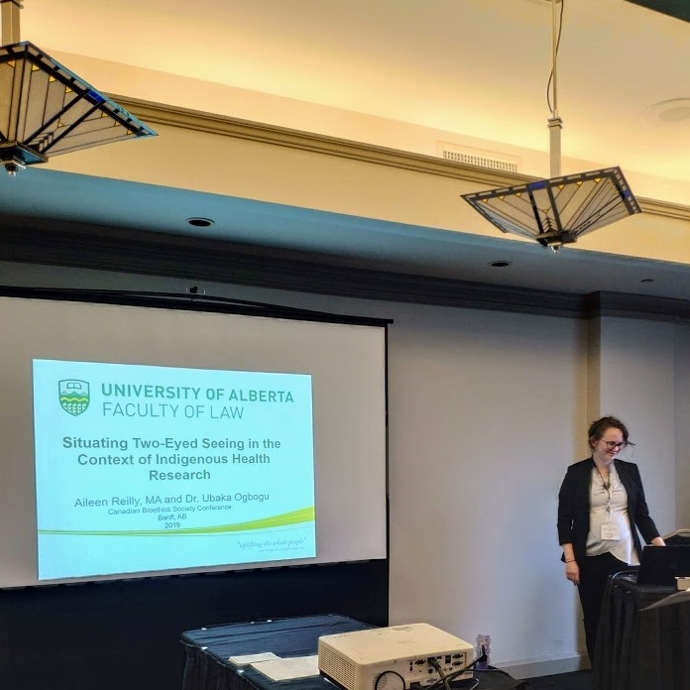
Aileen Reilly, academic support coordinator at the University of Alberta Faculty of Law, presented a paper about a guiding principle of research called Two-Eyed Seeing at the 30th Annual Canadian Bioethics Society Conference in Banff, on May 24.
The paper, "Situating Two-Eyed Seeing in the Context of Indigenous Health Research," stemmed from a Canadian Institutes of Health Research Planning and Dissemination grant held by the Faculty's Prof. Ubaka Ogbogu. The project team includes Prof. Erin Nelson (UAlberta), Prof. Chelsea Gabel (McMaster), Prof. Mary Ellen MacDonald (McGill) and Dr. Martine Lévesque (McGill).
Two-Eyed Seeing is a guiding principle for co-produced research and knowledge creation involving Indigenous and non-Indigenous researchers, institutions and communities. The principle originated through the work of Mi'kmaq Elders Murdena and Albert Marshall from Eskasoni First Nation, along with Dr. Cheryl Bartlett at Cape Breton University.
Reilly and Ogbogu noted that Two-Eyed Seeing "is increasingly applied as a decolonizing approach in health research, though many have noted that an operational understanding of the approach remains elusive.Our paper attempts to understand how Two-Eyed Seeing is being translated and applied in the context of the studies that we have reviewed."
This theme of this year's conference was Embracing the Disruptive Edge of Healthcare, and participants were asked to think differently, confront biases and take action.